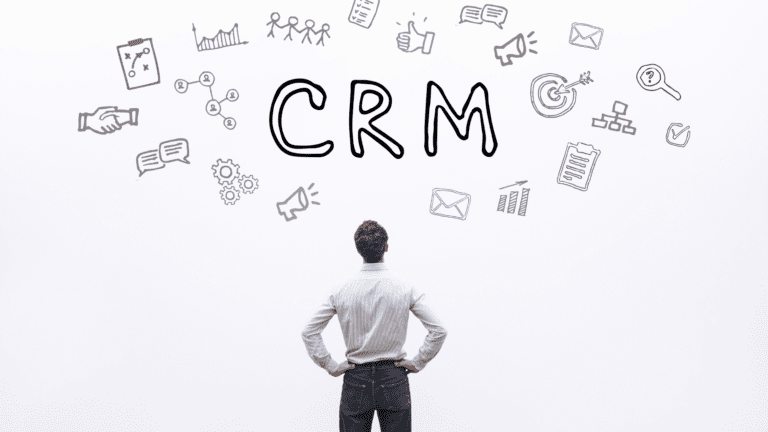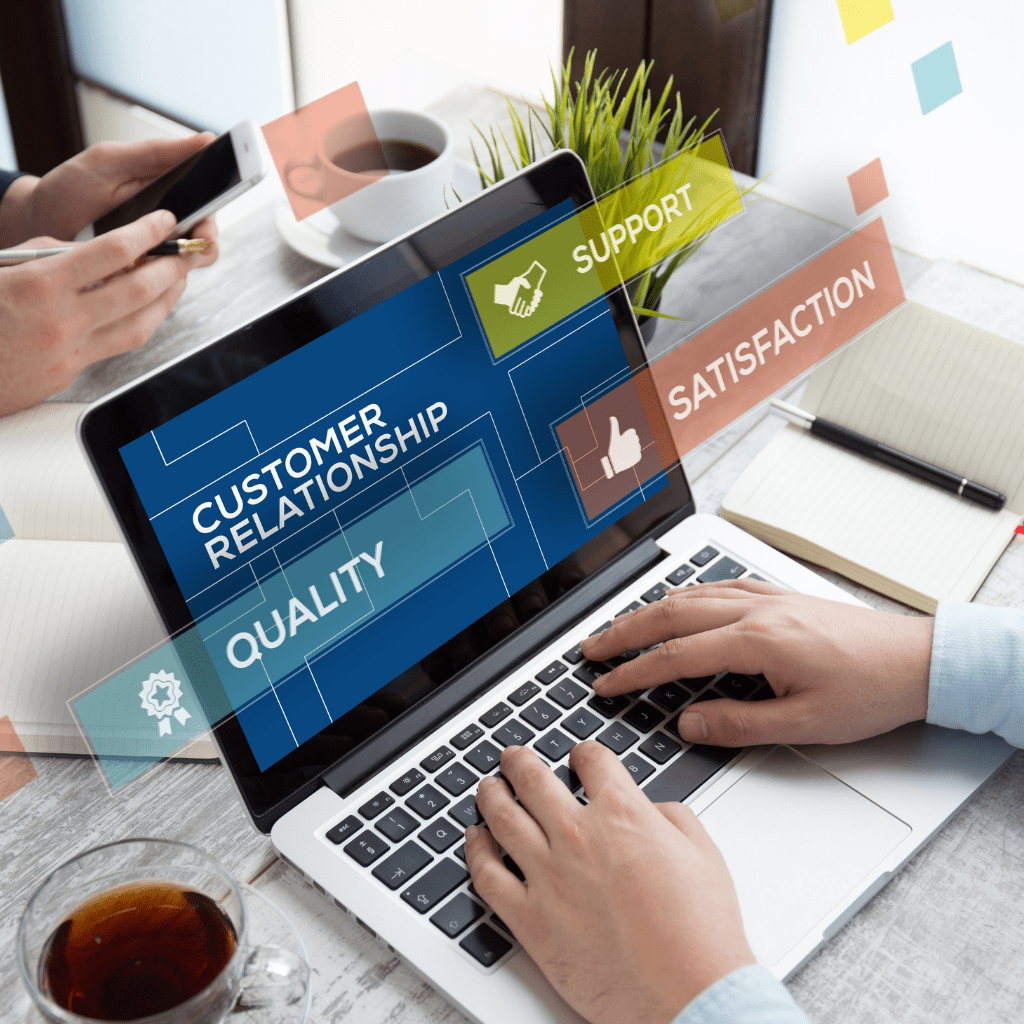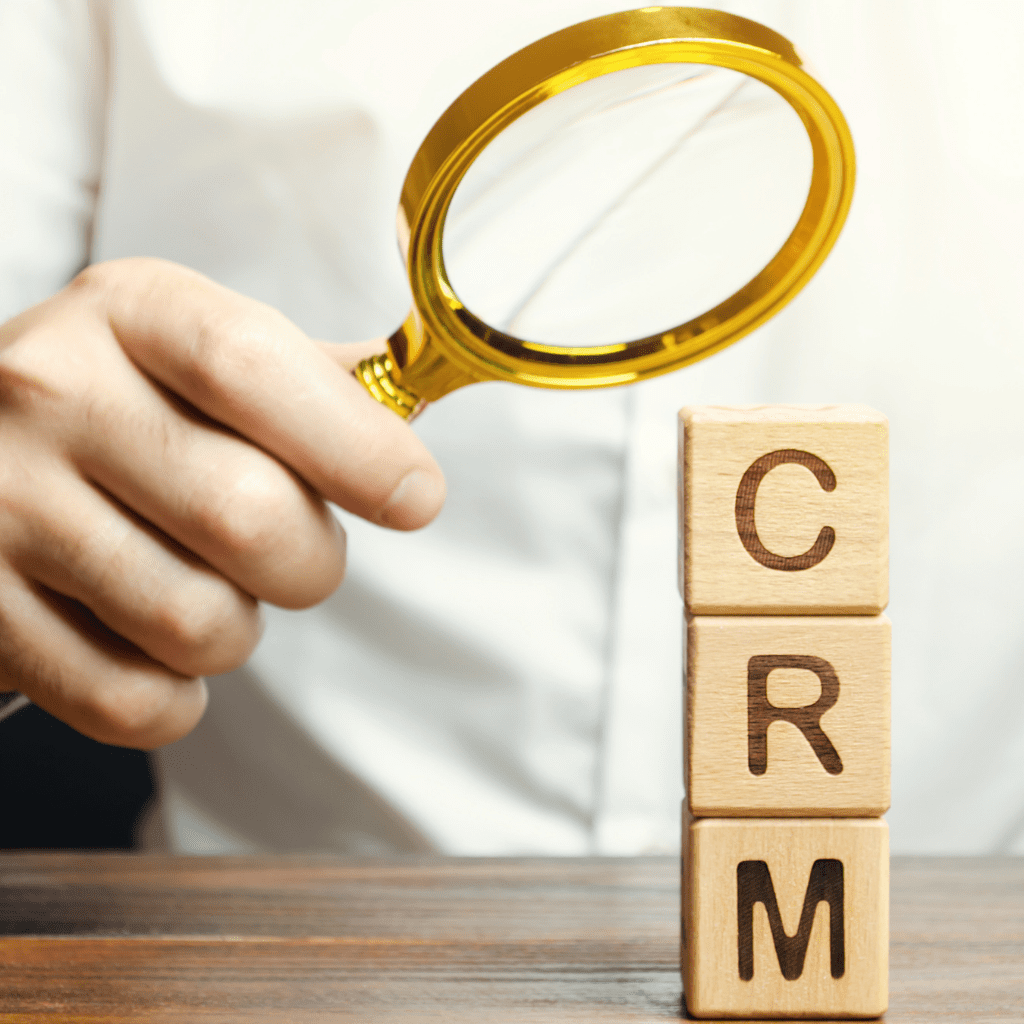
Choosing an enterprise CRM is an important decision. There are many criteria to consider, and it's not easy to find the right software for your needs. In this blog post, we'll give you some CRM selection criteria to consider for 2023 . We'll also look at the advantages and disadvantages of the different types of CRM available on the market. So, without further ado, let's take a look at how to choose the right CRM.
CRM, or customer relationship management, is a strategy that companies use to track customer relationships from pre-sales to post-sales. A CRM system is software that stores information about customers' and prospects' interactions with employees.
Marketing and sales touchpoints - including e-mail, telephone, website, live chat and social media - are closely tracked. This provides employees with detailed context on a customer's activity.
So, with a CRM, no more wasting time tracking down customer information. You enter the age of organization. It positively forces you to be structured and to centralize all information about a customer or prospect.
Secondly, CRM saves a lot of time when it comes to technical tasks. It often incorporates functions for matching or sorting information, which are much easier to do than with an Excel spreadsheet.
It is much easier, for example, to find all the customers who :
Finally, CRMs naturally open up new opportunities. CRM publishers' core business is lead generation. Their aim is to provide a tool that is truly adapted to the latest trends.
Without further ado, let's take a look at its main advantages.
The advantage of having a CRM system is having a central database for all customer information. Because a company's most valuable and important asset is its customer base.
Here are the 5 main benefits of CRM integration:
Now you're thinking, that's all well and good, but how do I know if my company needs a CRM? We answer that question in the following section

There are a few situations in which a CRM is not necessarily useful.
For example, if you work alone and only need 2 or 3 customers a year to make a living, a CRM is not mandatory.
This is the case for :
But these are very special, even rare, cases.
That's why most companies need a CRM!
The questions you should ask yourself when assessing your need for a CRM system are as follows:
If you answered "yes" to any of the above questions, your company could benefit from benefit from a CRM system. Adopting one sooner rather than later will help you avoid frustration and future headaches.
By now, you know that a CRM tool is essential for managing your company's customer relationships. Now let's get to the heart of the matter: how do you choose the right CRM?



There are many CRMs to choose from, and many seem similar to each other. In reality, choosing the best one depends on your objectives.
To help you, ask yourself these questions:
The biggest mistake many first-time CRM buyers make is evaluating suppliers before deciding on their own objectives. By focusing on suppliers, you end up reverse-engineering their offerings to define your needs, rather than focusing on areas of real business value to your company. For example, a mobile CRM may seem state-of-the-art, but if you're only running an on-site internal sales team, it may not be the best solution.
If multiple solutions are really similar, we recommend :
If in doubt, call in the professionals. LANEfor example, can help you not only to find the most suitable solution for your company on the market, but also to implement it in an optimal and integrated way, while training the people involved.
Small business owners buying a CRM for the first time often underestimate the number of features they need.
What's more, using a system that's too complex means you'll have to invest even more in configuration and customization. This can be both wasteful and unnecessary when your challenges can be solved using less robust systems like these "CRMs".
In the next section, we'll look at the features you need to know about if you're an SME.
The CRM selection criteria are as follows:
Of course, other CRM functions can also be included:
Don't hesitate to take a look at sites like G2Crowd, GetApp or Software Advice to be sure you're choosing the right CRM, or use the services of a consulting firm.
By now you're aware of the importance of a CRM for your sales team, and you also know how to choose one. Now it's time to find out what tools are available on the market, and what an expert can advise you.
It's quite simple: there are hundreds of CRM tools available.
Now, there are fewer serious, professional CRM tools out there, but certainly a few dozen...
To make things easier, we've selected a few tools for you.
Honestly, it's not a question our customers ask very often. But it's in the air at the moment. Indeed, it's always interesting to favor Swiss companies, if you're a Swiss company, of course. If that's the case, you should know that there are Swiss CRMs like Bexio or InvestGlass.
As you've seen, there's a wide range of CRM tools available on the market. Choosing a CRM will depend on the size of your business and your objectives. If you'd like to find out more, our consultants will be happy to help.
It's now important to know what the CRM trend is for 2022.
If we have to make a global prediction for technology and CRM in 2022, it's that more companies will use technology to eradicate or automate what they don't want to manage. This while achieving better results on the tasks they do focus on.
The recipe for this is a powerful CRM, automated workflows where possible, and a connected application stack where data moves freely between your applications.
If you're wondering, how big does your company need to be to have a CRM? The answer for 2022 is: a company with just one employee is big enough.
When you're managing contact details, juggling a busy pipeline and have customer data to track, you can benefit from using a CRM. These are familiar pain points for freelancers.
So, while not all organizations are ready for sophisticated stand-alone analytics platforms, more and more SMBs see CRM analytics as a must-have, not an asset.
When you set out to develop your sales process, it's essential to have a CRM that can handle activities efficiently. Because competition in this market is fierce, and there are a multitude of different solutions offering similar functionality, the choices can be daunting.
But don't panic, the experts at LANE Digital Consulting can identify the one that will meet your company's specific needs and create buy-in among your entire sales team.
A CRM, or Customer Relationship Management system, is a software tool used by companies to manage their interactions with customers. The program stores customer information and automates certain processes linked to sales/marketing campaigns through different channels such as emailings, phone calls, etc.
Whether you sell a product, provide services or deal with customers of any kind, if your aim is to grow your business, you need a CRM. It's often said that it costs money, but generates benefits in return thanks to its effectiveness in building relationships with customers, which translate into sales leads and loyalty over time.
Here are 6 benefits of CRM to improve your customer relations:
A common misconception about CRM systems is that they are clumsy, complicated and difficult to implement. But modern CRM systems no longer require the difficult configuration to which they were once accustomed. They are quick and intuitive to use, eliminate many manual administrative tasks and can be configured in a matter of minutes. Such is the case with HubSpot CRM.
However, if you'd like to use HubSpot CRM for the first time, or if you simply want to see what HubSpot, the experts at LANE can help. As a HubSpot partner company, we install and configure your CRM before training your teams in best practices.